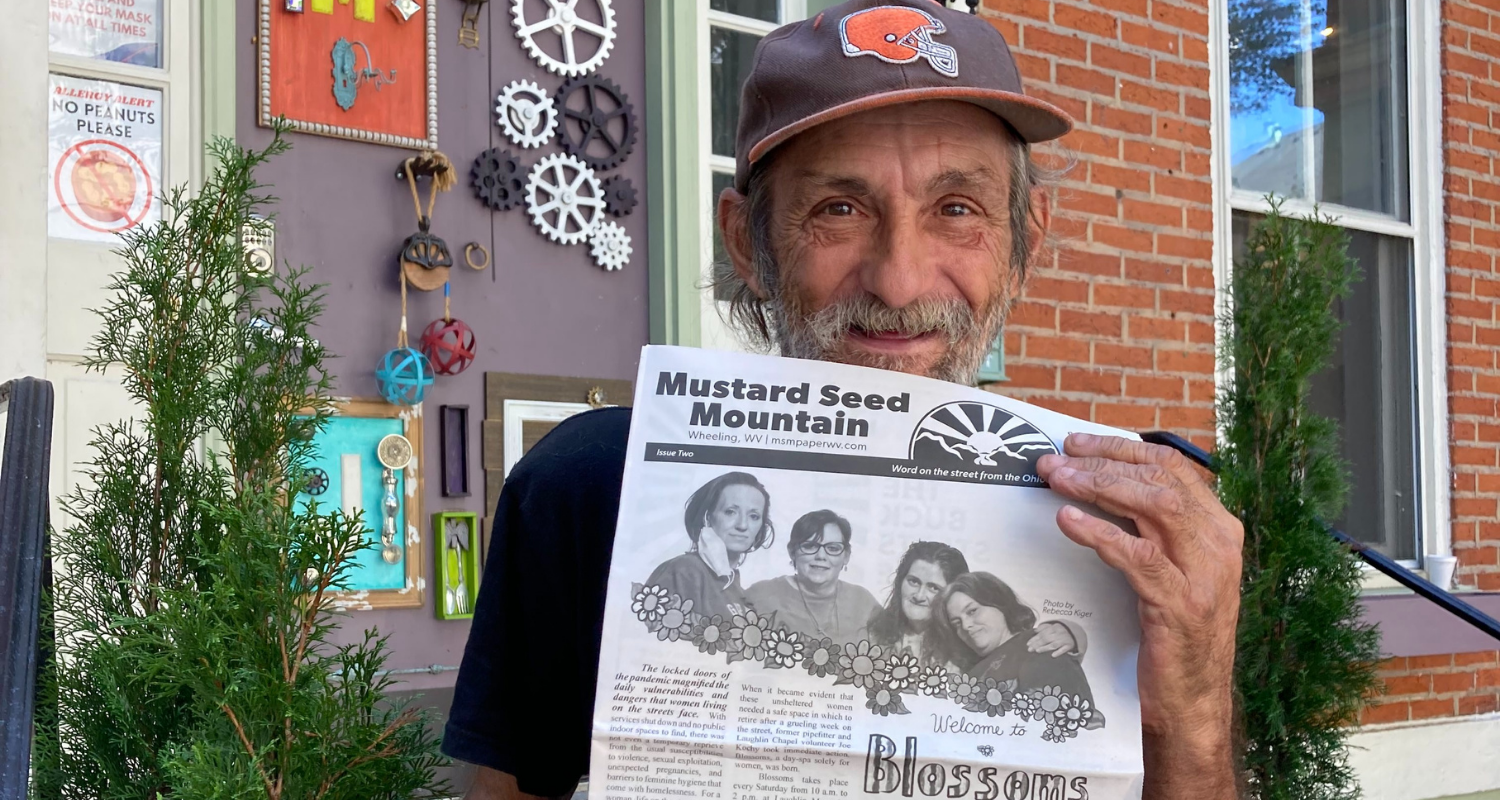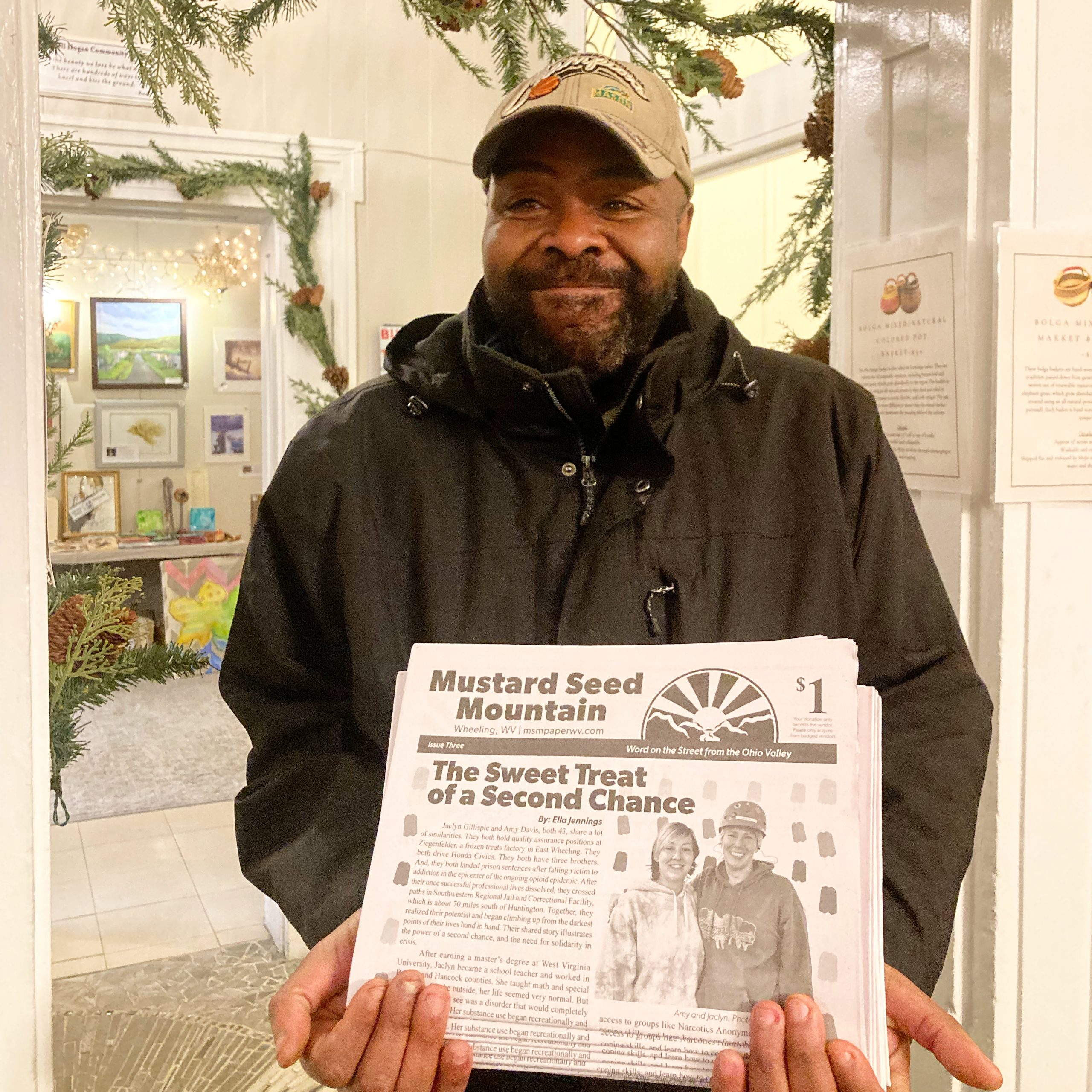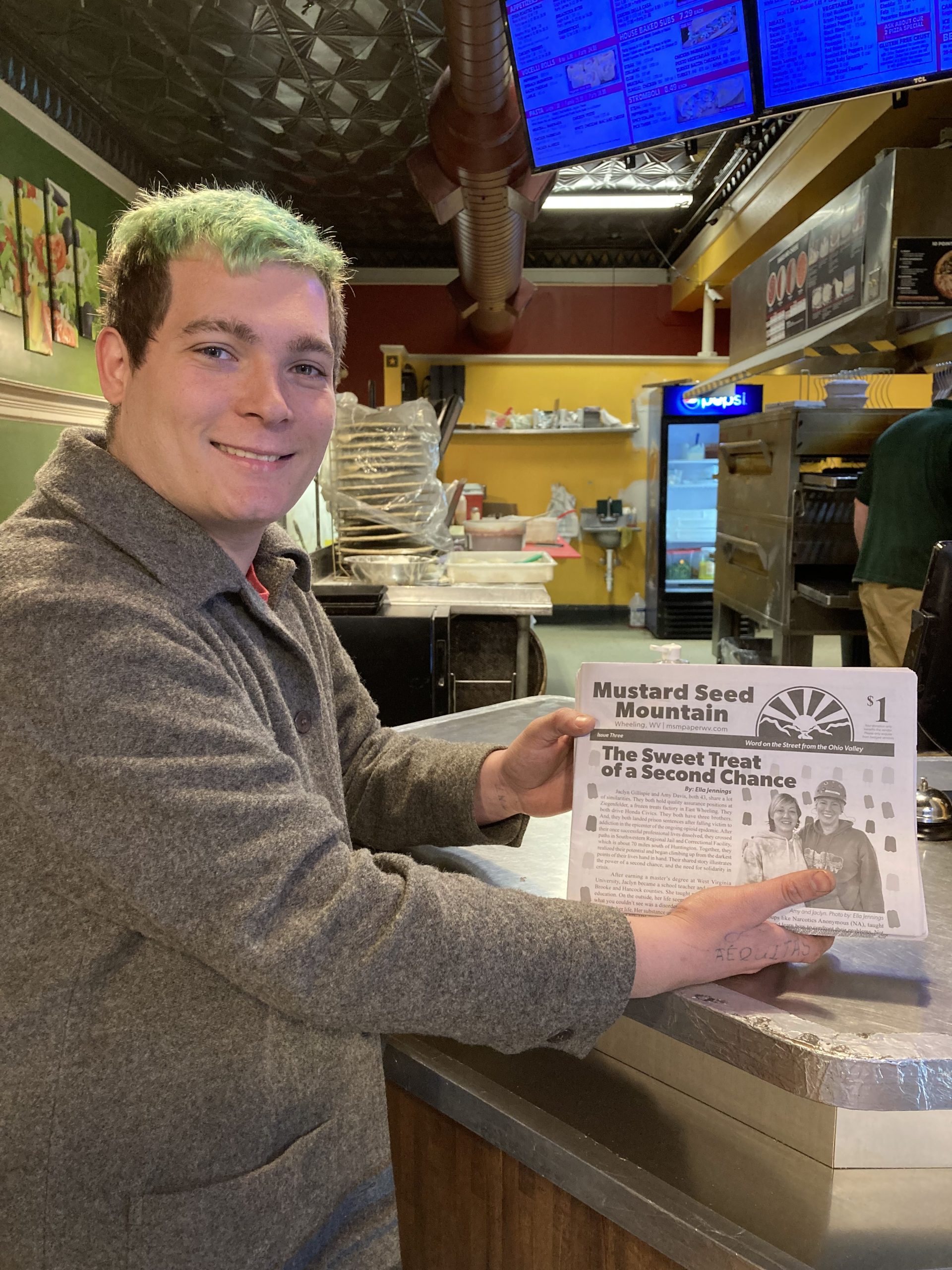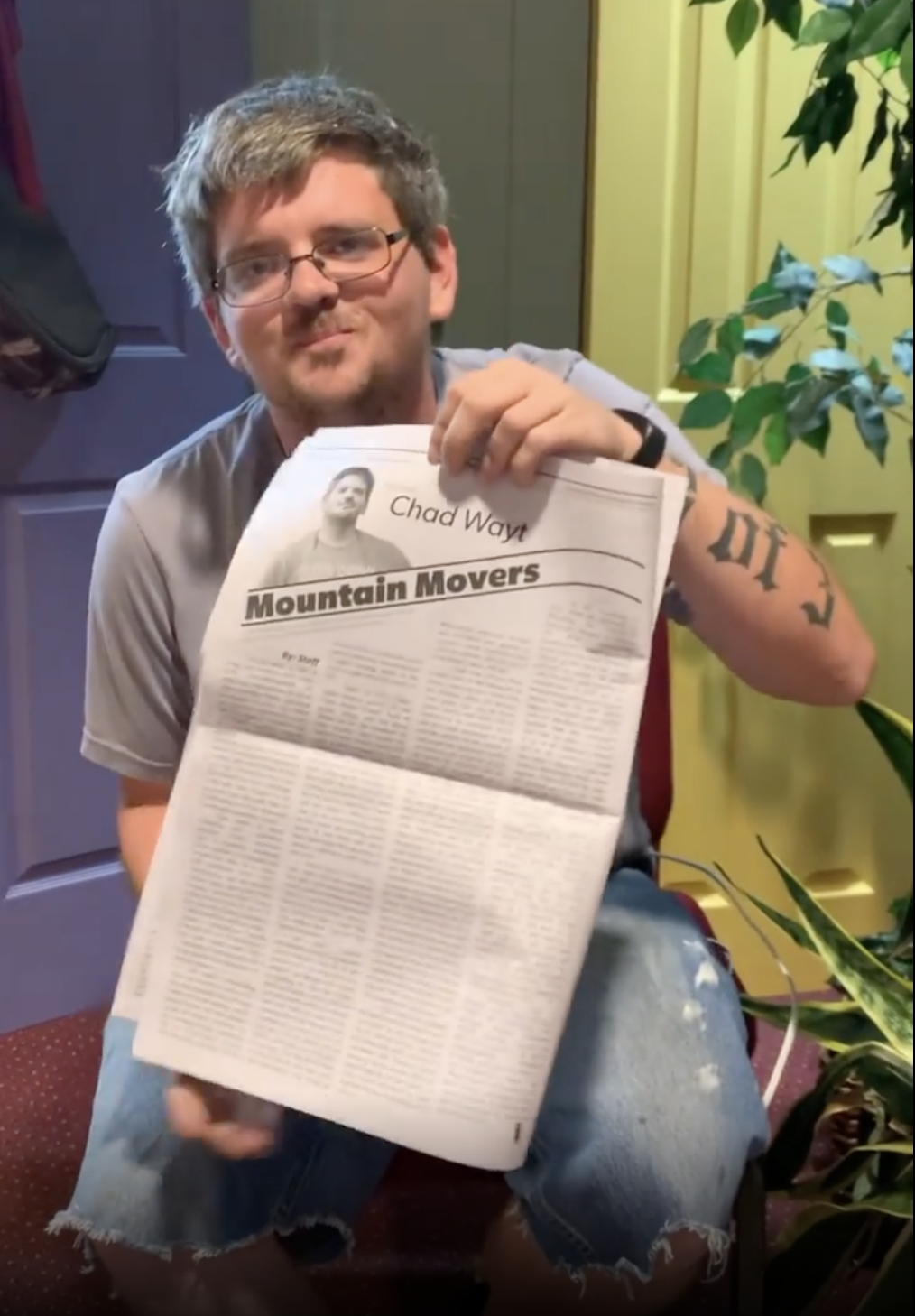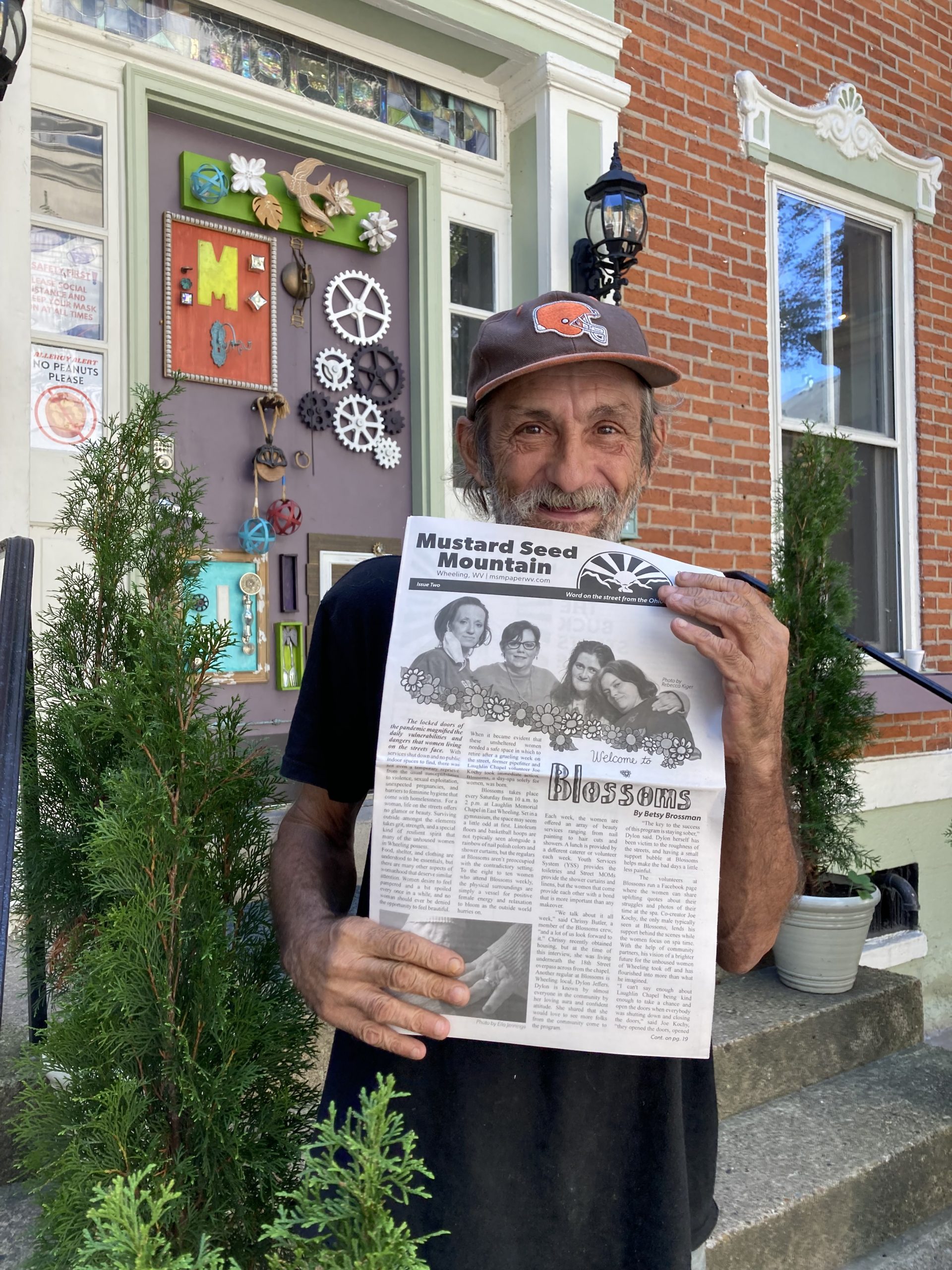In the modern world, technology has all but eradicated the demand for physical media like traditional newspapers and magazines. Long gone are the days when printed publications were our sole source of daily news. Television and the internet now bring us an endless stream of updates and knowledge directly to devices that fit in our pockets.
But what about those who live outside the bubble of convenient access to technology? Those who find themselves experiencing homelessness might find comfort and value in a publication that shares their stories and art, hosts a resource list, and features an obituary section to honor friends and family members who have passed away. The Mustard Seed Mountain street paper aims to provide this and more to an often overlooked community. It is West Virginia’s first street paper, and it operates right here in Wheeling.
Ella Jennings knows what makes a good story. The West Virginia University Reed College of Media alumna (Masters in Journalism ‘19) received the prestigious Edward R. Murrow award for outstanding achievement in broadcast and digital journalism in 2020 for a series about her hometown of Weirton and its post-industrialization struggles, which was featured on West Virginia Public Broadcasting. She is the Editor of Mustard Seed Mountain and an active contributor at the Mother Jones Center for Resilient Community (MoJo for short).
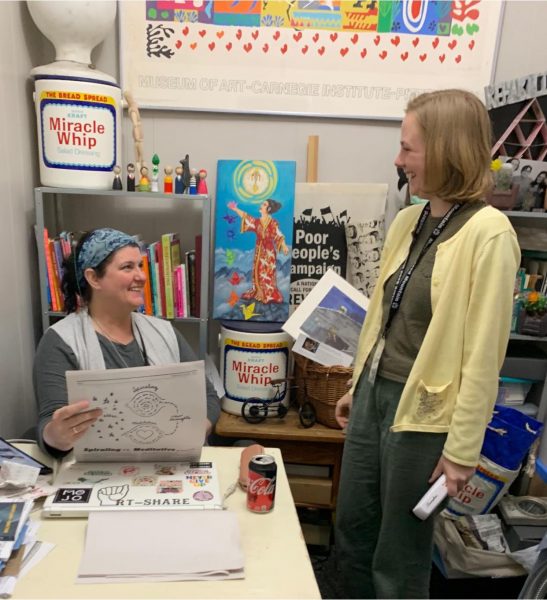
Jennings’s partnership with well-known East Wheeling humanitarian Kate Marshall would create the perfect storm for Mustard Seed Mountain’s inception. There were several other invaluable and kind go-getters who would help make this vision a reality, including Nic Cochran of the Youth Services System Recovery Homes, Grow Ohio Valley’s Vincent DeGeorge and Hannah Hedrick, and Doug Abner – who, according to Marshall, started up a newspaper while in prison (you can read his stories in Issue Three of MSM). The staff has changed and grown alongside the paper, including a new graphic design intern from West Liberty University.
Initially, the founding architects would meet to talk and share ideas. Jennings spent her spare time researching street papers, ultimately discovering the existence of an International Network of Street Papers (INSP). This network would serve as a vital point of direction for the fledgling publication – meeting with them via Zoom and sharing resources. There was also one among them who had a bit of experience. A few years prior to starting MSM, Kate Marshall got her hands on a street paper from nearby Cleveland, Ohio, and it planted the seed of a dream.
“I could see in the community, a very big need to have a space and a platform where people could voice their experiences, their opinion, and their side of the story that was totally unrepresented in media,” says Marshall.
“So I’ve been working in East Wheeling – I don’t even call it work. I’ve been living with my community for a decade, and one of the things that I very quickly learned is that people who are experiencing poverty are extremely disconnected from news and media sources, for a variety of reasons.”
Most in Wheeling will recognize Kate Marshall as Executive Director of HoH-Share, Inc., where she oversees both the House of Hagar and the MoJo, but she also plays a vital role for Mustard Seed Mountain. In her first Director’s Desk segment for Issue One, Marshall tells a sorrowful, but all-too-familiar tale about a young woman with a painful past who lost her life due to substance use. Mainstream news might depict similar people as stereotypes, or worse, as faceless statistics. This is just one of the gaps that Mustard Seed Mountain aims to fill by giving voice to those who have long gone unheard, and giving space to those who live in the margins.
As a publication, Mustard Seed Mountain resembles a traditional newspaper. There’s a brimming Arts and Culture section that features poetry and visual art from the community – even a crossword puzzle. A favorite among readers seems to be the Street Almanac section, which offers up tips and “hacks” for surviving off the grid. The Obituaries carry the most weight, providing a space to honor those outside of conventional society who have passed on. For many, it is how they discover that their neighbors are gone, and allows them to properly grieve.
The vendor program is the heart of Mustard Seed Mountain. It provides community members with a commission for selling copies of the paper directly to the public. Jennings says each copy of the paper costs the vendor 25 cents, which they then sell for $1, resulting in a 75 cent profit per sale. It aligns with Mustard Seed Mountain’s core values by helping those experiencing homelessness and poverty, all while providing a grass-roots distribution network.
You may have noticed a stack of street papers at a local business around town, which is another marketing strategy with the vendor’s wellbeing in mind. Marshall says the hope is that through networking with brick and mortar shops, the vendors are building relationships and proving themselves as capable employees should the establishment be looking to hire in the future. Jennings adds that both herself and Marshall can be used as references to help create more opportunities for vendors to “build themselves up.”
So far, the community response to Mustard Seed Mountain has been overwhelmingly positive. Marshall recalls folks reaching out who otherwise may have never talked to an unsheltered person, or heard the story of someone struggling with or overcoming issues with substances. “To get to hear the human voice of the person experiencing that has impacted them so much, that we’ve had people writing letters and sending donations. I think that’s beautiful.”
As for the street paper’s future, Jennings envisions community writing workshops and more spaces for people to share and record their stories. Marshall said they also want to emphasize solution-based journalism by including extra facts and statistics to provide readers with more context. It is the difference between giving a community a voice and trying to affect actual change. “That takes both, you know, the stories really pull out empathy just by a person telling their recovery story, but then more hard-hitting like, can we actually change this, please?” said Jennings.
Other than purchasing copies of the paper directly from vendors or participating businesses, Mustard Seed Mountain offers a subscription service and accepts direct monetary donations. For more information, check out their website and Facebook page.
• Tucker Riggleman is a writer and musician currently living in Wheeling. When he’s not working his day job as the Digital Media Coordinator for Youth Services System, you might find him trout fishing or performing with his rock band Tucker Riggleman & The Cheap Dates. He is also a certified Peer Recovery Support Specialist, a published poet, and an AmeriCorps alum.


